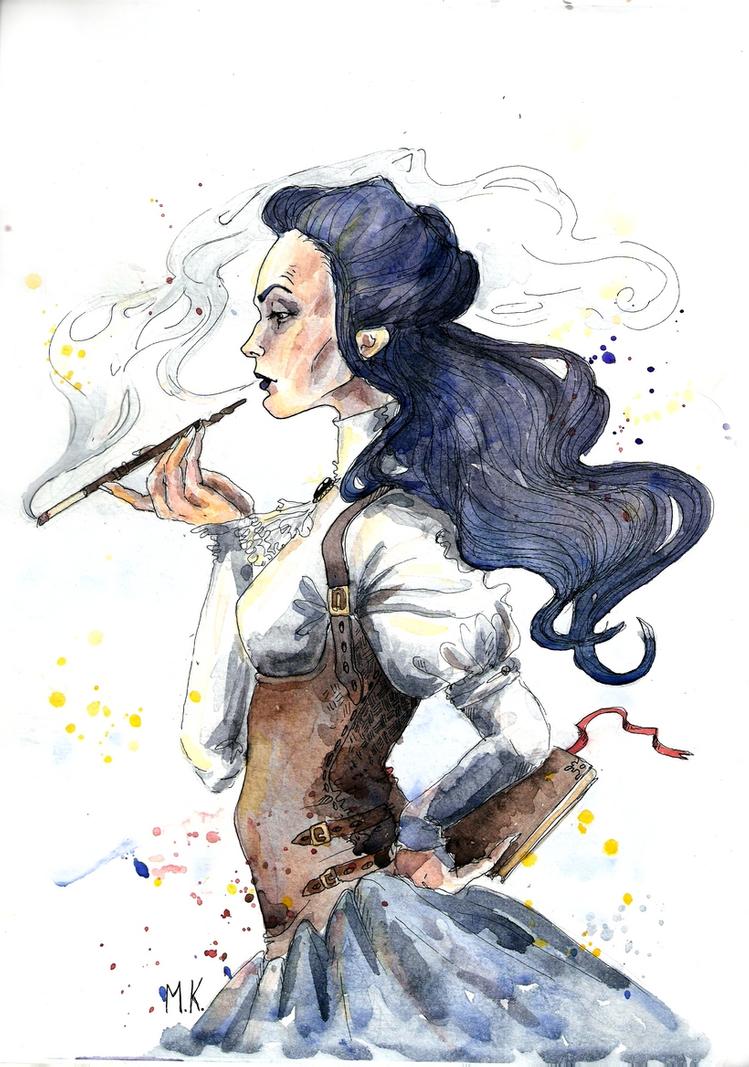You have just read a blog post written by Jason McIntosh.
If you wish, you can visit the rest of the blog, or subscribe to it via RSS. You can also find Jason on Twitter, or send him an email.
Thank you kindly for your time and attention today.

Prompted by Aaron Reed’s own revist, I just finished a re-read of The Scar, the second of China Miéville’s “New Crobuzon” novels of steampunk excess. My friends seem to consider it the best of the three; I first read it maybe ten years ago, and remembered almost nothing about the book other than my enjoyment of it. This created the best conditions for a re-read, where everything comes as a surprise, and yet I carry near-certainly that I’ll have a great time. I did — and my experiences with the fiction I’ve consumed in the years since gives me greater insight about why it worked for me.
Bellis Coldwine, the The Scar’s core protagonist, is practical, determined, analytical — and spends every page in a position of painful weakness, getting absolutely played by one villain’s schemes after another. A middle-aged urbanite intellectual, she has absolutely no business on the high-seas adventure among pirate factions and imperial navies that misfortune tumbles her into, and quite honestly proves terrible at it. But she never falters in holding fast to her motivation: returning to the city she loves. She knows that giving in would mean — even in the very best outcomes — never seeing her home again, and she decides early on that this will never do. Her jaw thus set, she fights like hell, providing a burning spirit that gives a novel full of otherworldly wonders and pitched sea battles its true motive force.
Experienced but antisocial, Bellis makes precious few friends while at sea, and makes many more gut-wrenching mistakes — inevitable given her need to improvise constantly in an alien setting that (literally!) never stops shifting under her boots. She suffers terribly, but never surrenders, and grows stronger from all the injury. Bellis emerges at the end reforged, with all the doubt and baggage she didn’t even know she carried burned out of her. The Scar has so many amazing things to show you, but on this re-read I found Bellis’s human-scale struggle, and the personal growth she wins at dear cost, the most compelling reason to keep returning.
But the book’s most memorable character — honestly, the one detail I recalled at all from my first visit — is Uther Doul, the pirate lords’ super-powered lieutenant. As much as I’d love to see a film adaptation of The Scar, I would need to resign myself that all its merchandise would center on this brass-and-leather Darth Vader. A swordsman and gunfighter of preternatural skill, enormous intellect, and monkish calm, Doul wields an outstanding artifact-weapon whose nature I won’t spoil here. His bloodily colorful exploits give him throngs of piratical fans — and even turn Bellis’s crank a bit, despite her better judgment.
Crucially, we almost never see Doul except through Bellis’s eyes, and the narration stays outside his thoughts: he remains terrifyingly unknowable, even as Bellis draws closer to him. And I assert that this is absolutely correct, from a storytelling standpoint! Doul as a sympathetic character would not fit The Scar at all; he would weigh the story down with the presence of a brooding but infallible anime hero, at best. Instead, Doul inhabits the world as another force of nature for Bellis to negotiate with, in a novel already full of sea monsters and living storms. That this particular force has invested itself in the shape of a man just makes life harder for Bellis — another in the pile of difficulties which, as we have already determined, provide the diesel that this story propels itself on.
My comparing Bellis and Doul, and admiring the way that the book allows them to co-exist interestingly by granting only the weaker party any transparency, reminds me of my very different experience between Ann Leckie’s Ancillary Justice and its first follow-up Ancillary Sword. Even though the books have the same main character, and while I enjoyed the first novel quite a bit, I lost interest in the second somewhere around the halfway mark.
This happened in large part because the hero, imbued with godlike abilities but also utterly broken and lost at the start of the first novel, succeeds in finding herself at the end. And so the second book finds her at the well-deserved height of her powers, commanding a starship as a hyper-competent super-captain, surrounded at all times by a cloud of scrambling redshirts ever amazed and agog at her leadership, resourcefulness, and athleticism.
Certainly it felt real nice to see my old friend happy and doing well in her new life. As one chapter followed another, though, I felt like a guest overstaying his welcome; the captain had better things to do than entertain me. Naturally the story had stakes and tension and so on, but at no point did I have any doubts that she would handily carve through it all, and I feel safe saying that she felt the same way. Eventually I decided to just quietly leave her to it, and saw myself out.
Thinking about it, I could name more examples of main characters I’ve adored from various other media who, to one degree or another, defined themselves through suboptimal performances; dear, naive Mae from Night in the Woods comes to mind. I suppose that a protagonist doesn’t have to be terrible at their job in order to set up an interesting story with room for them to grow through cycles of error and correction. But, when done well, it does seem to be a pattern I appreciate!
This article was also posted to the “books” section of Indieweb.xyz.
To share a response that links to this page from somewhere else on the web, paste its URL here.